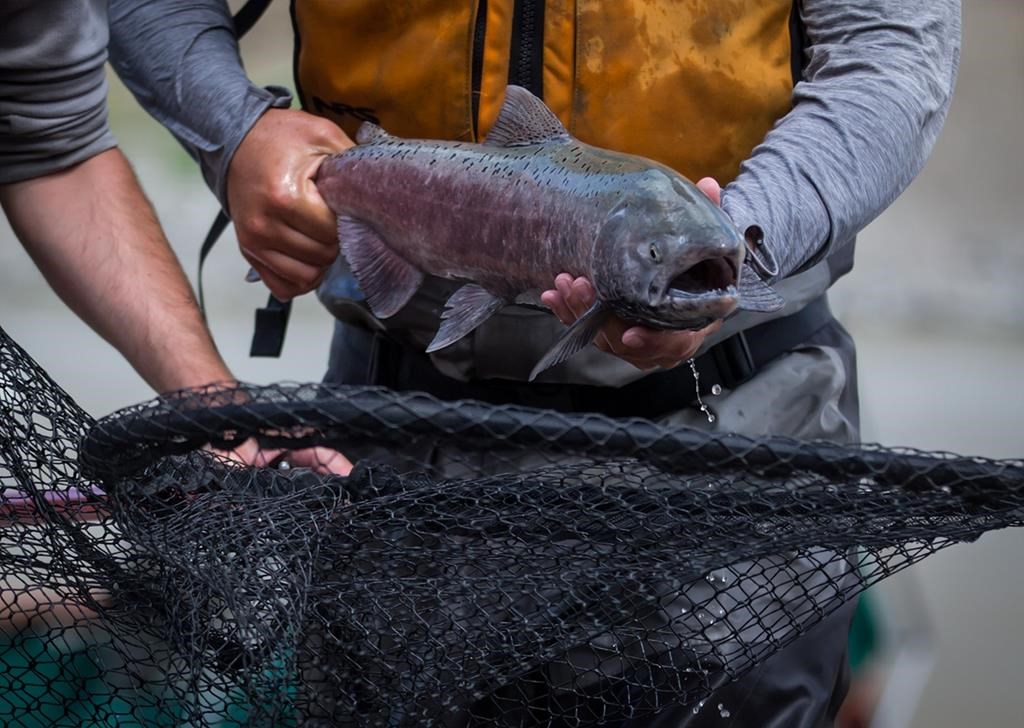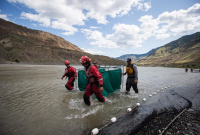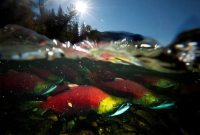Support strong Canadian climate journalism for 2025
Helicopter airlifts of migrating salmon have been temporarily halted at a rock slide in British Columbia's Fraser River because officials say large numbers of fish are now getting past the obstruction on their own.
A statement from the management team working at the Big Bar landslide, northeast of Vancouver, says acoustic monitoring, radio tags and visual observations confirm chinook and sockeye salmon are swimming through the landslide unaided.
The statement says the fish are finally getting past the blockage because water levels have fallen and crews have successfully shifted some of the huge boulders that created a five-metre waterfall across the river earlier this year.
It had the potential to prevent millions of migrating Fraser River salmon from reaching spawning grounds north of the Clinton area.
Helicopters had been used to lift nearly 60,000 fish over the rockfall, but experts remain concerned about the ability of the returning run of 1.5 million pink salmon to get past the slide.
They say helicopter and truck-transfer operations will resume if the smaller, weaker species can't follow its chinook and sockeye cousins upriver.





Comments